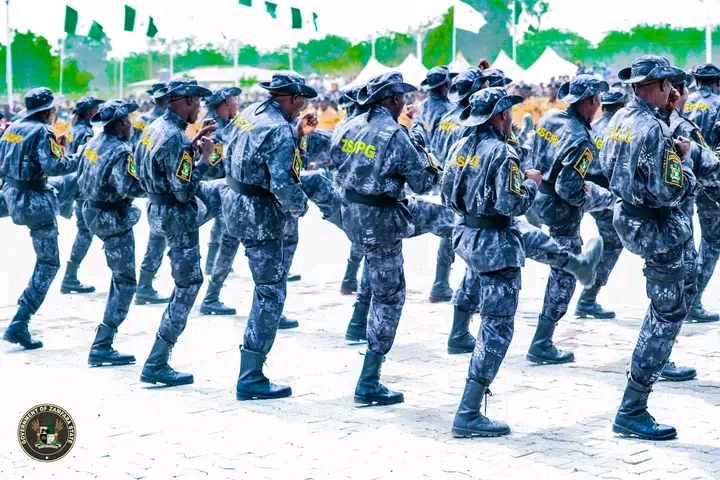by Shehu Muhammed Shehu
Residents in Zamfara State, in northwestern Nigeria, have expressed their delight at the launch of the Zamfara State Community Protection Guard (ZSCPG) by the state governor, Dauda Lauwa, about the governor’s effort to end the persistent insurgency in the state.
Prolonged insurgency in the troubled state within Northwest Nigeria has claimed the lives of hundreds of people, forcing thousands to flee from their houses and leaving yet countless numbers of animals rustled by cattle herders.
According to The Cable lndex report on security in Nigeria, in 2023 alone, Zamfara recorded the highest number of abductions, with 854 victims and fourth in the states, with 421 killings in Nigeria.
In a 2021 public lecture delivered at Usmanu Danfodiyo University, Sokoto, Murtala Ahmad Rufa’i, a university don, stated that more than 120 bandit gangs held sway in the northern flank, including Zamfara, Sokoto and Kaduna. According to Rufa’i, each of these gangs had more than 500 AK-47 rifles in their possession.
Speaking with this reporter, Aliyu Sani Sk, who hails from Tsafe in Zamfara, shared his satisfaction at the governor’s initiative, highlighting the unsuccessful measures of previous administrations at curtailing the menace.
“We are happy with the way the state government decided to inaugurate a community protection guard. The 12 years of bloodshed are unbearable, as all two former governors of the state did what they could to settle the matter but did not succeed. Now the current administration came in with another ideology,” Sani said with a beam.
Sani further expressed his confidence in the new security team in eliminating banditry and criminal gangs from the state, as done in the neighboring state of Katsina, which has since become peaceful.
Like Aliyu, Alh Bello Ibrahim Gusau, from Gusau, the capital city of the state, couldn’t contain his delight at the inauguration of the security guard to fight insecurity in the state.
“I was so excited with the inauguration of the Zamfara State Community Protection Guard, as it is a tool for eradicating bandits and banditry activities in Zamfara State,” Gusau said.
While being optimistic about the future, Ibrahim admonished the government to be prompt in salary payment in order to keep the team’s morale high.
Bashir Aliyu from Shinkafi local government, said it was indeed a welcome development. Aliyu also called on the government to uncover the root causes of the long-drawn-out crisis in order to provide a lasting solution.
The Genesis
Research by Murtala Rufa’i tracing the history of banditry indicates that the vice started in Zamfara, long before the arrival of colonial masters.
It was, however, in 2011 when the first armed group led by Kundu and the notorious Buharin Daji—both of Fulani background—emerged and named the group Kungiyar Gayu, which roughly translates to an association of young guys. In truth, none of the men were youths. The public referred to them as Kungiyar Barayin Shanu (cattle rustlers association).
In a bid to stem the persisting rise of bloodletting and kidnapping, the former governor of the state, Abdul’aziz Yari, in 2018, recruited 8,500 vigilantes (referred to in local parlance as Yan sa-kai), equipping them with bikes.
However, after accusations of killing innocent people and taking revenge on the Fulani communities in the state, Bello Muhammad, upon becoming governor in 2019, rescinded the outfit.
The governor promptly moved to reconcile the leaders of the bandits within the state, restoring some peace and quiet. It wasn’t long before the bandits resumed their vices, shattering the hope of long-lasting peace within the state.
In January 2024, Dauda Lawal, the current governor, inaugurated the first phase of Community Protection Guards as part of his own commitment to fighting banditry in the state. The team of 2,646 members has received rigorous training from security agencies.
Inaugurating the Community Protection Guard in Gusau, the state capital, Governor Lauwal expressed his confidence in the efficiency of the outfit in curbing banditry and restoring the long-awaited peace.
What the experts say
Murtala Abdullahi, a security and defence analyst, believes the initiative can support the state’s security agency as an intelligence base. Abdullahi, however, stresses the creation of strong policies to keep the vigilantes in check and prevent them from fueling the crisis, as seen in the case of Yan Sa-kai.
He maintains that more efforts are needed to control the flow of weaponry, funds and recruitment, suggesting the need for the federal government to readjust its overall strategy for the region in collaboration with states in order to ensure a cohesive response.
Residents of Zamfara State in northwestern Nigeria are pleased with the launch of the Zamfara State Community Protection Guard (ZSCPG) by Governor Dauda Lauwa. This initiative aims to combat the ongoing insurgency in the state, which has led to significant loss of life, displacement, and cattle rustling. In 2023 alone, Zamfara recorded the highest number of abductions and ranked fourth in killings in Nigeria.
Community members, including Aliyu Sani and Bello Ibrahim Gusau, believe the new security measure will succeed where previous attempts have failed. They commend the governor’s efforts and express optimism about the future, emphasizing the importance of prompt salary payments to maintain morale.
Historically, banditry in Zamfara dates back to before colonial times but became notably organized in 2011. Previous measures, including the recruitment of vigilantes, led to further complications and accusations of targeting innocent communities. The current effort involves a rigorously trained team of 2,646 members inaugurated in January 2024.
Security expert Murtala Abdullahi supports the initiative but advises the establishment of strong policies to regulate the vigilantes and prevent misuse of power. He also suggests enhanced control over the flow of weapons, funding, and recruitment, advocating for a unified federal and state response.






